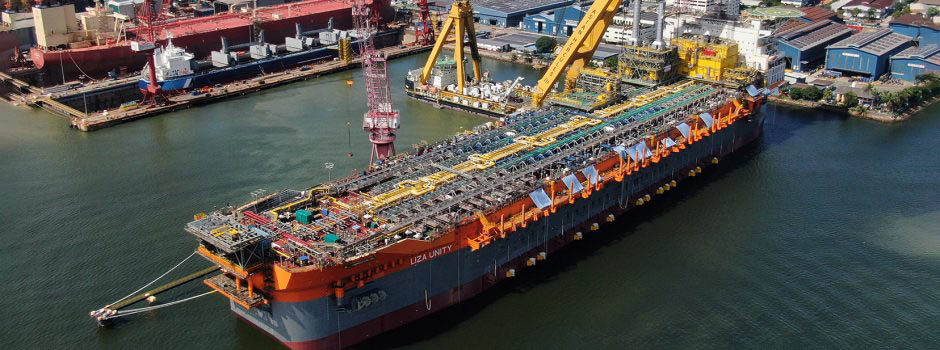As ExxonMobil prepares for the commissioning of the Liza Unity FPSO at the end of this month, government is exploring cutting out the ‘middleman’ and directly selling its oil share from that project and one option is India.
“That [selling to India] is something we will consider, too. But, of course, we would like it to be an open transparent process. We have always mentioned it should be that way. We are considering the option of India but then we are looking at making it an open process,” Minister of Natural Resources Vickram Bharrat told the Sunday Stabroek in an interview.
“What we are looking at, too, is not marketing but selling [ourselves]. In that way we save on the marketing fee. So if any country, India, or any company, is willing to do that, we may be open to talk about that. That way this country would actually save money,” he added.
Bharrat said that government will assess the best option for this country and isn’t worried that the clock is ticking given that commissioning of the Liza Unity Floating, Production, Storage and Offloading (FPSO) platform at the Liza-2 field is anticipated to begin later this month. That is because, he explained, there is a 60-day startup period where production is gradually ramped. It is only after then and the green light is given by engineers that the expected 220,000 barrels per day target could be reached, putting this country’s first lift in late April.
The Natural Resources Minister explained that government was “awaiting a confirmed date of startup from ExxonMobil. Should be end[of] this month.”
“We haven’t gone out as yet. I would say before the month is out we would go out. Our lift would not be until the end of April. Remember, when you start up it won’t be at full capacity for a while. There is a 60-day period [of commissioning]. They will also flare for a short period of time at the commissioning so we have time. You have Exxon, Hess, CNOOC and then us” (in terms of oil lifts),” he said.
It is in this vein he said that government is mulling it’s options for selling and looking at the fact that this country pays a marketer for the Liza-1 oil when it could enter agreements where it would get the same or even a better deal.
“The present arrangement is that we pay the company to market our crude. For example, we pay Aramco US$25 cents on a barrel… So, if we can save that money, it is more money for the country and more revenue coming in,” the minister said.
“So that is something we are exploring. Once we get countries or companies that are willing to do so, we may very well consider them. If they are giving us Brent price and not charging a marketing fee then it is better for us,” he added.
However, there are still plans in train to advertise for a marketer for the oil from the Lisa Unity FPSO in the coming weeks, if a decision is not made by then. “We would go out for tenders, say by the end of February.”
India’s High Commissioner to Guyana, Dr. K. J. Srinivasa has been vocal about New Delhi’s interest in formalising a long-term contract for the purchase of Guyana’s crude oil.
“Collaboration in the oil and gas sector is proceeding successfully and we hope to further strengthen this by working on a long-term contract between the Indian State-run public sector unit – Indian Oil Corporation – and the Government of Guyana for procurement of crude oil from Guyana to India,” he had told a virtual symposium last year May, when speaking on “Perspectives on Guyana-India Relations from 1838 to 2021”.
His announcement had come one week after the Reuters news agency had reported Bharrat as stating that India has expressed interest in buying one of the 1 million-barrel cargoes that government is entitled to, in order to test the crude in its refineries.
India has since purchased two lifts of Guyana’s oil.
In an interview with Stabroek News just over a week ago, Srinivasa restated India’s interest in purchasing Guyana’s oil.
“We have taken two lifts already. Last year March and last year July, but this was not part of a long-term deal… we are expressing our desire to take Guyana’s oil because the second FPSO is here. So, if a long-term government to government contract can be done, we will be very happy to take the oil,” he said.
Srinivasa explained that India is trying to diversify its supply sources and with increased production in Guyana it is looking to the country as one of the prospective sources. However, he added that they have been unable to secure a deal that guarantees long-term supply.
“So we are willing to take Guyana share of oil… let us see how it pans out. With this extra [production] that will come on stream, they’ll be able to work out something because the problem for us is we need a finality.
“So we are very happy to work with the government of Guyana and getting this oil is important for both Guyana and India because you will get an assured buyer and we will get an assured supplier. So we are with the Government of Guyana, you know we are working with them very closely and let us see how fast it can be done,” he explained.





